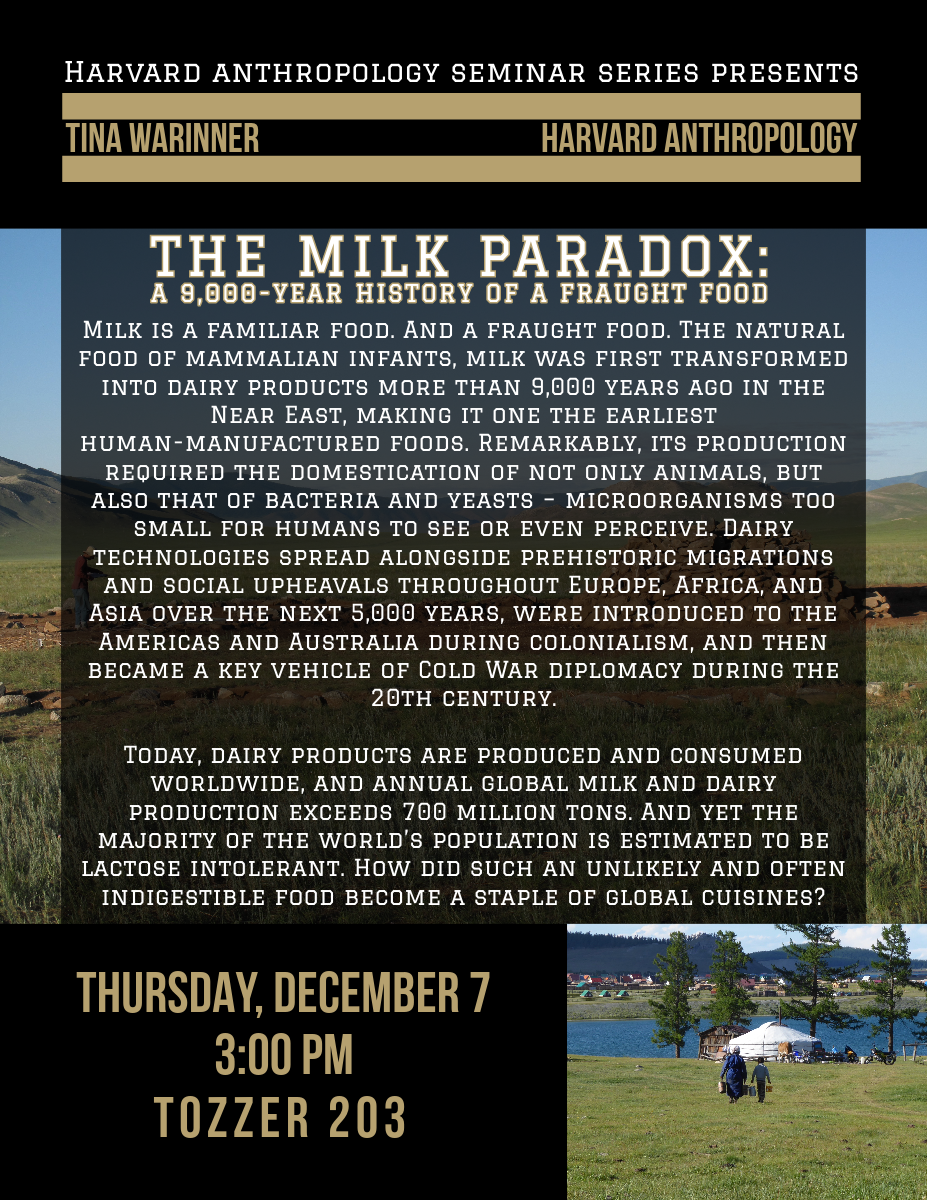Date:
Location:

Full Abstract:
Milk is a familiar food. And a fraught food. The natural food of mammalian infants, milk was first transformed into dairy products more than 9,000 years ago in the Near East, making it one the earliest human-manufactured foods. Remarkably, its production required the domestication of not only animals, but also that of bacteria and yeasts – microorganisms too small for humans to see or even perceive. Dairy technologies spread alongside prehistoric migrations and social upheavals throughout Europe, Africa, and Asia over the next 5,000 years, were introduced to the Americas and Australia during colonialism, and then became a key vehicle of Cold War diplomacy during the 20th century.
Today, dairy products are produced and consumed worldwide, and annual global milk and dairy production exceeds 700 million tons. And yet the majority of the world’s population is estimated to be lactose intolerant. How did such an unlikely and often indigestible food become a staple of global cuisines?
Building on emerging technologies in the archaeological and biomolecular sciences that are making dairy products visible in the archaeological record for the first time, this talk examines the long and often surprising history of milk. Using an interdisciplinary approach, I will take a fresh look at the phenomenon of lactose intolerance, its history of scientific study, and its unexpected ethnographic and archaeological paradoxes. Far from familiar, I aim to show that milk is revolutionary food with an ancient origin and a modern scientific mystery at its heart.
Speaker Bio:
Christina Warinner is the John L. Loeb Associate Professor of Social Sciences and Associate Professor of Anthropology at Harvard University, the Sally Starling Seaver Associate Professor at the Radcliffe Institute for Advanced Study, the Group Leader of Microbiome Sciences in the Department of Archaeogenetics at the Max Planck Institute for Evolutionary Anthropology in Leipzig, Germany, and the Group Leader of Archaeogenetics at the Leibniz Institute for Natural Product Research and Infection Biology in Jena, Germany.
She specializes in the analysis of ancient DNA and proteins, and her research focuses on the study of ancient biomolecules to better understand past human diet, health, and the evolution of the human microbiome. She has conducted groundbreaking studies on the evolution and changing ecology of the human oral microbiome, including publishing the oldest oral microbiome to date from a 100,000-year-old Neanderthal, and she has published extensively on prehistoric migrations, the origins and spread of dairy pastoralism, and the biodiversity of the human gut microbiome.
In addition to her research, she is passionate about public education and outreach, and she created the Adventures in Archaeological Science coloring book, now available in more than sixty languages, including many indigenous and underrepresented languages. She is engaged in the open science movement, and her research group has been actively involved in improving scholarly communication, data sharing, and research transparency.
